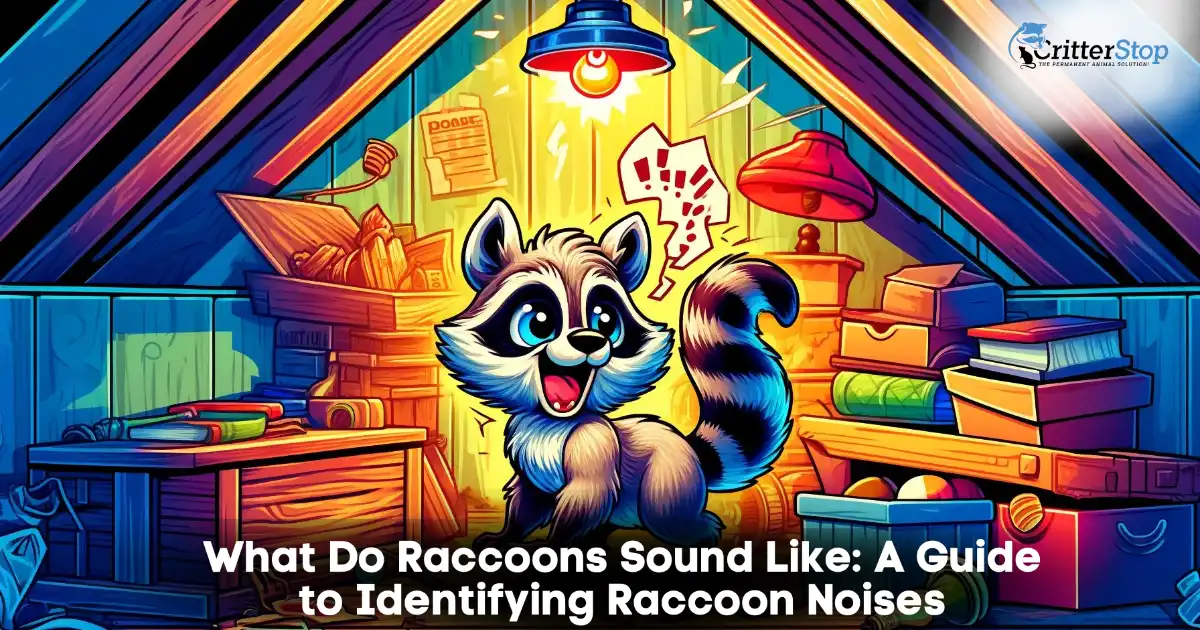
Raccoons are known for their distinctive markings and mischievous behavior. Usually, they can be found foraging through trash cans or searching for food in the nighttime. However, one aspect of raccoons that is often overlooked is the sounds they make. Many people are unaware of the variety of noises that raccoons can produce and may be surprised to learn just how vocal these animals can be.
Raccoons are not typically thought of as being particularly vocal animals, but in reality, they can make a wide range of sounds. Common sounds of raccoons include hissing, growling, snarling, and purring. They also make a variety of chattering and chittering noises, which are often used to communicate with other raccoons. These sounds can be heard both during the day and at night, although raccoons are generally more active at night.
Raccoons' vocalizations can range from chattering and growling to hissing and screaming. These sounds are used by raccoons to communicate with each other, establish territories, attract mates, and express distress.
Raccoons are nocturnal animals, and they are most active at night. During this time, they can often be heard making a variety of sounds, including chattering, growling, and snarling. These sounds are typically used by raccoons to communicate with each other and establish territories.
When raccoons are in distress, they will often emit a series of high-pitched screams and whistles. These distress calls signal danger and attract the attention of other raccoons. If you hear a raccoon sound like these, it is best to stay away from the animal and avoid approaching it.
During the mating season, male raccoons will emit a series of loud, high-pitched calls to attract females. This type of raccoon sound can often be heard throughout the night and are typically accompanied by other vocalizations and physical displays, such as posturing and grooming.
In conclusion, raccoons are highly vocal animals that use a variety of sounds to communicate with each other and express their needs. You will be able to appreciate raccoons and their distinct ways of living better if you know the many noises they make.
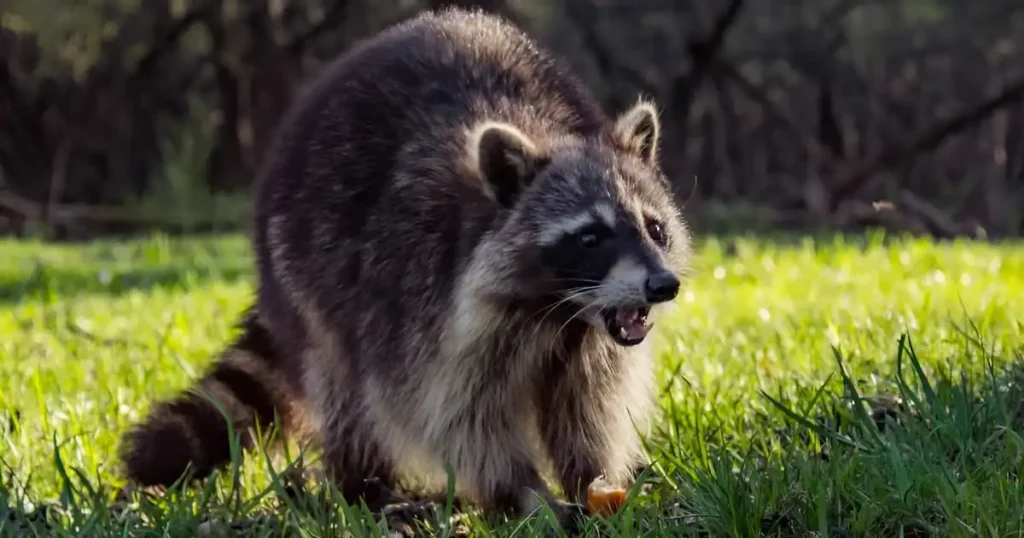
Raccoons are known for their adaptability and can thrive in both urban and rural environments. They tend to be more active at night, as they are nocturnal creatures. Raccoons are also known for their vocalizations, which can be heard in residential areas.
One of the most common places where raccoons can be heard is in the attic. Raccoons are excellent climbers who can easily climb onto roofs and access attics through vents, holes, or damaged roof areas. Damage to insulation, wiring, and other parts of the attic can be caused once they are inside.
Raccoons in the attic can be heard making a variety of sounds, including scratching, thumping, and scurrying. They may also vocalize, making a range of noises from chattering to growling. These sounds can be quite loud and can be heard throughout the house.
Raccoons can also be heard in walls and chimneys. They can enter these areas through gaps or cracks in the exterior of the house. Once inside, they can cause damage to the walls and chimney, as well as create a fire hazard if they build a nest in the chimney.
Raccoons in walls can be heard making scratching and thumping sounds. They may also vocalize, making chattering or growling noises. Raccoons in chimneys can be heard making similar sounds, as well as chirping or whining noises.
If you hear raccoon noises in your residential area, it is important to take action to remove them. In addition to causing harm to your property, raccoons can transmit diseases that could be dangerous to people or pets. Contact a wildlife removal professional to safely and humanely remove raccoons from your property.
When it comes to juvenile raccoons, they have their own set of unique sounds that they use to communicate with their mother and siblings. These sounds can vary depending on their age and the situation they are in.
Newborn raccoons are born blind and deaf, and they rely solely on their sense of touch and smell to communicate with their mother. They make high-pitched, mewing sounds to let their mother know when they are hungry or uncomfortable. As they grow older and their eyes and ears open, they start making a wider range of sounds.
One of the most common sounds baby raccoons make is a series of whimpers and whines. These noises are often used when they are hungry, cold, or scared. They may also make chattering sounds when they are excited or playful.
As they get older, they start to make more complex sounds. They may growl or hiss when they feel threatened, or make a purring noise when they are content. They may also make a trilling sound when they are happy or excited.
Overall, the sounds of baby raccoons can be quite varied and can change depending on the situation. However, they are generally high-pitched and often used to communicate their needs to their mother.
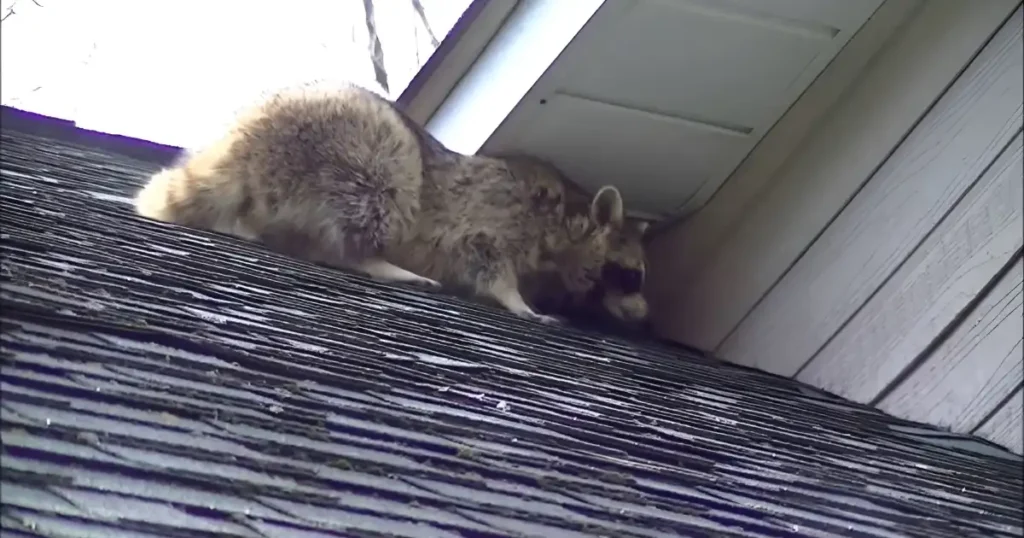
Raccoons have distinctive vocalizations, which can range from chattering and growling to hissing and screaming. These sounds are used by raccoons to scare off potential threats and to communicate with each other, and they can be very vocal animals.
When a raccoon feels threatened or cornered, it may resort to aggressive vocalizations to scare off its attacker. These vocalizations can include hissing, growling, and snarling, and are often accompanied by displayed teeth and prickled fur.
Raccoon vocalizations can also be a series of loud, high-pitched screams, which are often mistaken for the cries of a human baby. These screams are used to intimidate predators and to signal to other raccoons that danger is present.
It's important to note that while raccoons may sound aggressive, they are generally not aggressive animals and will only attack if they feel threatened or cornered. If you encounter a raccoon, it's best to give it plenty of space and avoid making sudden movements or loud noises.
In general, raccoons dislike loud or sudden noises, so using a loud whistle or horn can be a good way to scare them off. However, it's important to remember that raccoons are wild animals and should be treated cautiously and respectfully.
Raccoons are known for their distinctive sounds, which can range from chattering and growling to hissing and snarling. These noises are often heard at night when raccoons are most active, and can be a sign of their presence in the area.
If you are trying to scare raccoons away from your property, certain sounds can be good. For example, loud music or a radio playing can be good in deterring raccoons, as they do not like loud or unfamiliar noises.
Using a motion-activated sprinkler system is another option. It will spray water when it detects movement, which can startle raccoons and make them think twice about coming back to your property.
It is important to note that while certain sounds can be good in scaring raccoons away, it is always best to take preventative measures to keep them from entering your property in the first place. This can include securing trash cans, sealing up any possible entry points, and clearing any sources of food or water.
In conclusion, understanding raccoon sounds and how to interact with them can help keep these critters at bay. By using the right sounds and taking preventative measures, you can help ensure that raccoons do not become a problem on your property. However, if you have a persistent raccoon problem, many homeowners find that contacting a wildlife professional is the most effective solution.
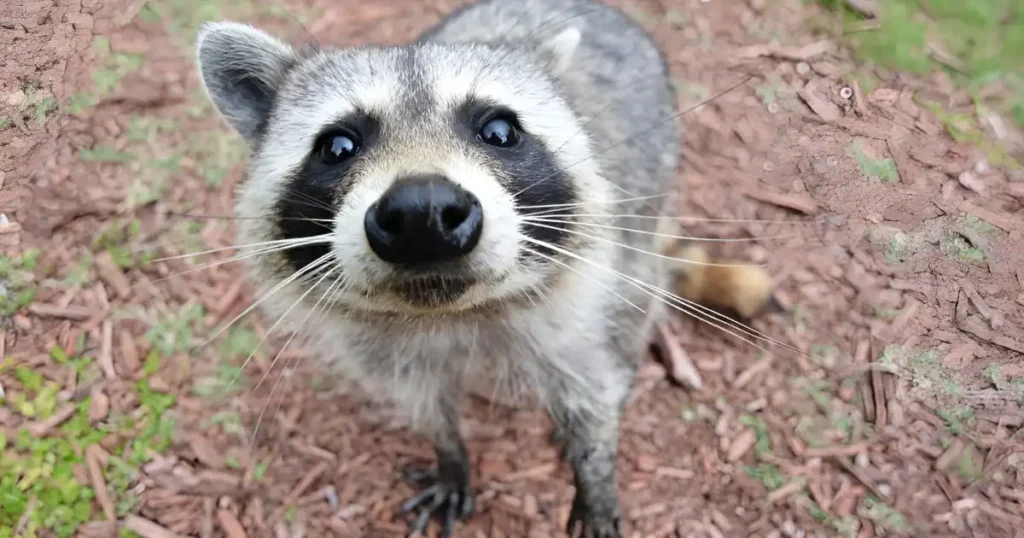
Raccoons are known for their vocalizations, which can be a mix of growls, purrs, chatters, and whimpers. Typical raccoon sounds can be used to convey various messages, including aggression, fear, and mating calls.
Here are some common raccoon sounds and what they might mean:
Raccoons are wild animals and it’s important to treat them with caution. If you hear raccoon sounds outside your home, it's best to keep your distance and call a professional wildlife removal service if necessary.
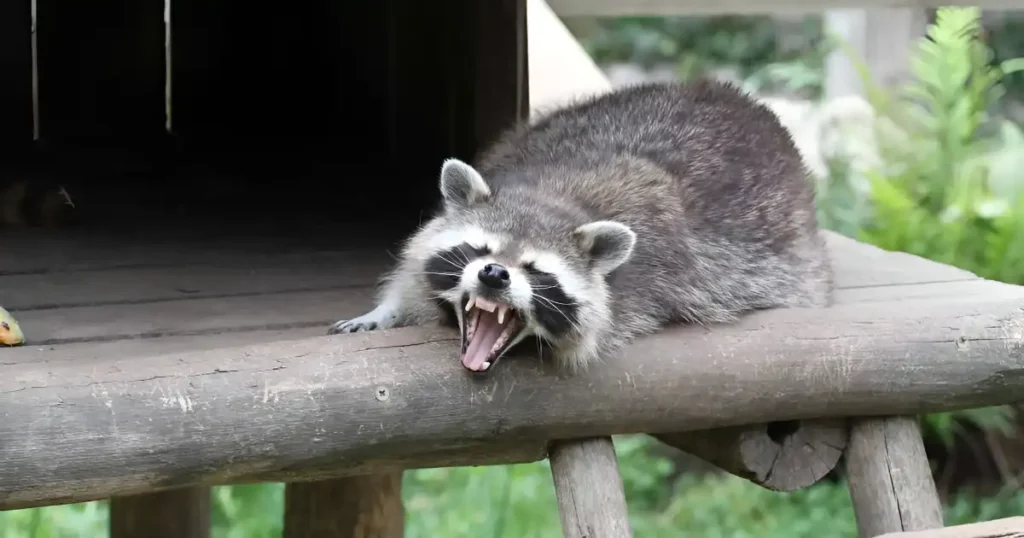
Raccoons are known for their distinctive sounds, which can vary depending on their habitat. These nocturnal animals are found in both urban and wild areas, and their sounds can be a sign of their presence.
Raccoons living in urban areas tend to make more vocalizations than those in the wild. This is because they are more likely to encounter humans and other animals, and need to communicate more frequently to establish their domain and avoid confrontations.
In urban areas, raccoons can often be heard making a variety of sounds, including chattering, hissing, growling, and screeching. They may also make a high-pitched whine or scream when they feel threatened or are in pain.
In the wild, raccoons are generally quieter, relying more on scent marking and body language to communicate among themselves. However, they may still make noises such as chirps, grunts, and snarls when interacting with other raccoons or defending their territory.
Overall, raccoon sounds can provide valuable information about these fascinating creatures and their habitats. By listening carefully and observing their behavior, we can gain a better understanding of their social structure, communication methods, and survival strategies.
Are raccoon noises in your attic making you lose your sleep? Your best bet to get rid of your raccoon infestation for good is hiring an experienced, reputable professional wildlife removal company, and that’s exactly what Critter Stop is. We service residential and commercial customers in Texas, offer industry-leading guarantees, and have a five-star reputation. Contact Us at (214) 234-2616 and book your free inspection and estimate today!
Raccoons are known for their distinctive chatter and vocalizations. They can produce a variety of sounds, including hissing, growling, and snarling. Raccoons are also known to make a range of vocalizations, including purring, whining, and chattering. Their vocalizations can vary depending on the situation, such as when they are mating, fighting, or communicating with their young. If you hear raccoon sounds, you should contact a professional wildlife removal company.
When raccoons are in distress, they may produce a high-pitched whine or a series of sharp, short screams. These noises can indicate that the raccoon is in pain, scared, or injured. It is important to keep your distance if you hear these sounds and to avoid approaching the raccoon.
Raccoons are nocturnal animals, and they are often most active at night. During this time, they may produce a range of vocalizations, including growls, hisses, and chattering. They may also emit various other sounds, such as squeaks, whines, and purrs.
They communicate with their mothers through a range of vocalizations. These sounds can include chirping, mewing, and whining. By making these noises, the kits can communicate their needs to their mother, such as when they are hungry or need to be cleaned.
Raccoons and cats can produce similar sounds, such as hissing and growling. However, raccoons are generally louder and more aggressive in their vocalizations compared to cats. Additionally, raccoons may produce a wider range of sounds compared to cats.
Raccoons may emit a screaming sound during the night if they are frightened or in distress. This sound can also be a sign of aggression or territorial behavior. If you hear a raccoon screaming, it is important to avoid approaching the animal and keep your distance.
While raccoons and dogs can produce similar sounds, such as growling, their growls are generally different. Raccoons may produce a more guttural and aggressive growl compared to dogs. Additionally, raccoons may produce a wider range of sounds compared to dogs.
Visit our Critter Library and learn more about our furry friends